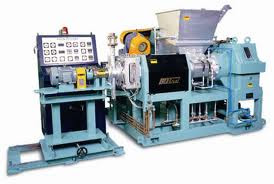

The market for used industrial equipment is a big one with many sellers out there. Any purchase decision regarding used machinery has to be made after considering many things because even in the secondary market for machinery, the costs are high and you are making a significant investment.
Here are the factors that you should consider when purchasing used machinery -
1. Your requirements - You need to have a clear idea of what you wish to buy and how it will add value to your business. This entails knowing the process flow at your manufacturing base and the remaining useful life of the equipment.
2. Your budget - Your budget will dictate many things including the brand and exact model type that you can purchase. You need to have a clear breakup of costs associated with your purchase decision. These include cost of additional space required, if necessary; cost of transporting the machines to your factory; dissembling and reassembling the machines; cost of machines and various duties applicable, etc.
3. Partnering the right people - Given the global nature of this business, it is not possible for a buyer to be in the know about the best deals out there in terms of cost and quality. This is where brokers come in, a good broking firm will be able to present you with multiple options and help you select the best used machinery for your needs.
4. Visual inspection - The importance of this aspect cannot be overstated; the internet has made communication easy and you can conduct a lot of your business communication online but there is no alternative to physically inspecting the machinery you are going to purchase. Used machinery is usually not warranted, you need to know the extent of refurbishment, and get an idea of the actual state of the machinery. You should insist on a test run and keep your eyes and ears open for tell-tale signs of machine ill-health such as unusual vibrations or noise. Find out about the state of maintenance and keep your eyes open for worn out parts.
5. Trade fairs - Businesses, whether big or small, benefit immensely by regularly visiting used machinery trade fairs such as the biggest trade fair in Europe set to commence on 21st of April, in a couple of days from now. Learning acquired and contacts made at such trade fairs can often prove invaluable when you get down to making purchase-related decisions.
6. Negotiate - Your physical observation of the machinery empowers you to negotiate with the seller or the broker. Do not hesitate to name a price that you feel is fair for the machine. Try and get favorable terms of delivery such as free to your site, transportation to be borne by the seller, etc.
7. Get everything on paper - This is a very important step in buying used machinery. Get everything on record, from the first formal quotation, the details of the machines, the accompanying accessories, delivery terms, mode of payment, extent of buyer liability, seller liability, etc.
In conclusion, it can be said that successful purchase of used machinery requires due diligence from the buyer; partnering a good broker that knows the inside working of the business can be a big help.






































